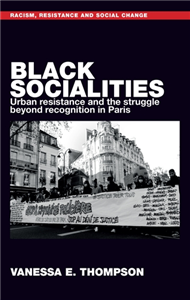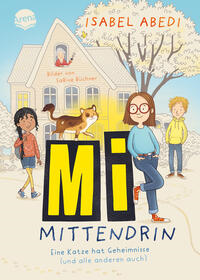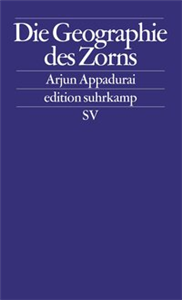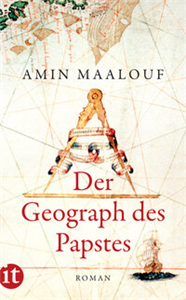Your Search Results
-
Mediendesign Dr. Georg Hauptfeld GmbH Edition Konturen
We are publishing book about the central questions of our culture in politics, philosophy, art and history.
View Rights Portal
-
Promoted Content
The Geography of Health
The Spatial Dimension of Epidemiology and Treatment
by Jobst Augustin, Daniela Koller
This title is the first interdisciplinary book about geography and health that takes scientific methods and questions into account making it a great manual of international health geography research. The topics include: • spatial statistical analysis • mobility analysis in health research • GIS and mapping tools • cartographic visualization • health mapping • cancer epidemiology • morbidity • climate change and health – the example of Germany • global change and infectious diseases Target Group: Health scientists, geographers, doctors (epidemiologists)
-
Promoted Content
-
 Trusted Partner
Trusted Partner
-
 Trusted Partner
Humanities & Social SciencesMarch 2026
Trusted Partner
Humanities & Social SciencesMarch 2026Black socialities
Urban resistance and the struggle beyond recognition in Paris
by Vanessa Eileen Thompson
From author: This is a cutting-edge exploration of black urban politics in Parisian racialized working class and working poor districts, the formation of abolition geography, and the possibilities of new forms of political blackness. In Black Socialities. Urban resistance and the struggle beyond recognition in Paris, Vanessa E. Thompson argues that black urban politics in the French banlieues are multi-racial and spatially grounded towards abolition. Based on a close engagement with urban black activist practices against racial imagery in the city, policing and state racism, and housing insecurity, she shows how radical anti-racism goes beyond struggles for recognition and unfolds alongside new formations of political blackness that is based on urban conviviality. This form of black politics has much to teach us in this current conjuncture of liberal anti-racism and state recognition politics.
-
 Trusted Partner
March 2009
Trusted Partner
March 2009Kleine Entdecker – Wie kommt der Strom in die Steckdose?
Über Elektrizität
by Kim, Mi-Gyeong / Deutsch Zaborowski, Hans-Jürgen
-
 Trusted Partner
Trusted Partner
-
 Trusted Partner
January 2011
Trusted Partner
January 2011Entspannung für Kinder
Stress abbauen - Konzentration fördern (mit Entspannungskurs)
by Friebel, Volker; Friedrich, Sabine / Illustriert von Penava, Mile
-
 Trusted Partner
Literature & Literary StudiesAugust 2022
Trusted Partner
Literature & Literary StudiesAugust 2022Edmund Spenser and the romance of space
by Tamsin Badcoe
Edmund Spenser and the romance of space advances the exploration of literary space into new areas, firstly by taking advantage of recent interdisciplinary interests in the spatial qualities of early modern thought and culture, and secondly by reading literature concerning the art of cosmography and navigation alongside imaginative literature with the purpose of identifying shared modes and preoccupations. The book looks to the work of cultural and historical geographers in order to gauge the roles that aesthetic subjectivity and the imagination play in the development of geographical knowledge: contexts ultimately employed by the study to achieve a better understanding of the place of Ireland in Spenser's writing. The study also engages with recent ecocritical approaches to literary environments, such as coastlines, wetlands, and islands, thus framing fresh readings of Spenser's handling of mixed genres.
-
 Trusted Partner
March 2008
Trusted Partner
March 2008Kleine Entdecker – Wohin reist der Blütenstaub?
Wie Pflanzen sich vermehren
by Kim, Mi-Gyeong / Koreanisch Zaborowski, Hans-Jürgen; Illustriert von Lee, Yeong-Rim
-
 Trusted Partner
March 2009
Trusted Partner
March 2009Kleine Entdecker – Wie passt der Elefant ins Ei?
Die embryonale Entwicklung der Lebewesen
by Kim, Mi-Gyeong / Illustriert von Lee, Geun-Jeong; Koreanisch Zaborowski, Hans-Jürgen
-
 Trusted Partner
Humanities & Social SciencesMarch 2017
Trusted Partner
Humanities & Social SciencesMarch 2017Air power and colonial control
by David Omissi
Air policing was used in many colonial possessions, but its most effective incidence occurred in the crescent of territory from north-eastern Africa, through South-West Arabia, to North West Frontier of India. This book talks about air policing and its role in offering a cheaper means of 'pacification' in the inter-war years. It illuminates the potentialities and limitations of the new aerial technology, and makes important contributions to the history of colonial resistance and its suppression. Air policing was employed in the campaign against Mohammed bin Abdulla Hassan and his Dervish following in Somaliland in early 1920. The book discusses the relationships between air control and the survival of Royal Air Force in Iraq and between air power and indirect imperialism in the Hashemite kingdoms. It discusses Hugh Trenchard's plans to substitute air for naval or coastal forces, and assesses the extent to which barriers of climate and geography continued to limit the exercise of air power. Indigenous responses include being terrified at the mere sight of aircraft to the successful adaptation to air power, which was hardly foreseen by either the opponents or the supporters of air policing. The book examines the ethical debates which were a continuous undercurrent to the stream of argument about repressive air power methods from a political and operational perspective. It compares air policing as practised by other European powers by highlighting the Rif war in Morocco, the Druze revolt in Syria, and Italy's war of reconquest in Libya.
-
 Trusted Partner
August 1995
Trusted Partner
August 1995Geographie der Lust
Roman
by Jürg Federspiel
Superlative an Lob spendierte die Kritik der »Geographie der Lust«: »geistvolle Erotik«, »himmlisch-schwerelos«, »mal absurd, mal märchenhaft«, »ein erstklassiger, ungetrübter Lesespaß« und: »Federspiel, ein wahrer Magier der Feder ... Federspiel at his best« (»Bündner Tagblatt«). Legenden sind selten erotisch, manchmal erbaulich- aber immer wunderbar: In »Geographie der Lust«, seiner bislang umfangreichsten Prosa, erzählt Jürg Federspiel eine märchenhafte Legende voller fabelhafter Erotik. Er erweist sich als unbändig verspielter Fabulierer, der mit seiner sinnlichen und kraftvoll zupackenden Sprache in absurd-monströse Szenerien entführt, aber zugleich auch den Tonfall des »Es war einmal ...« anschlägt, leise und voller Poesie. Federspiels Geschichte beginnt damit, daß sich Primo Antonio Robusti, ein »mächtiger Mann« aus Mailand, zu seinem siebzigsten Geburtstag nicht nur in den eigenen Reichtum verliebt, sondern kurz darauf auch in ein neunzehnjähriges, kokett-naives Geschöpf namens Laura Granati. Und so nimmt Robustis Schicksal »eine scharfe Wende« ...
-
 Trusted Partner
Geography & the EnvironmentMarch 2021
Trusted Partner
Geography & the EnvironmentMarch 2021Sanctuary cities and urban struggles
by Jonathan Darling, Harald Bauder
-
 Trusted Partner
February 2025
Trusted Partner
February 2025Mi mittendrin. Eine Katze hat Geheimnisse (und alle anderen auch)
Zauberhaftes Kinderbuch von Bestsellerautorin Isabel Abedi für alle ab 9 Jahren mit ganz viel Herz, Katze und einem Hauch Magie
by Isabel Abedi, SaBine Büchner
Mi lügt fast nie – aber heute will ihr niemand glauben. Zu Hause beschuldigt Mama sie, ihrer übelsten Nachbarin eine Regenbogenzwergin ins Gartenbeet gepflanzt zu haben. In der Schule behauptet ihr Lehrer, dass sie schummelt. Unfair! Als sich Mi auf Polly (so heißt ihr Bike) die Wut aus dem Leib strampelt, bricht ein gigantisches Gewitter los. So landet sie bei Kafka, einem geheimnisvollen Laden mit einem noch geheimnisvolleren Inhaber, der Mi den geheimnisvollsten Kaffeesack mit auf den Heimweg gibt. Und dann ist Mi plötzlich mittendrin in Geschichten, die sie selbst kaum glauben kann. Warum schleicht sich ihre große Schwester nachts heimlich raus? Was sind das auf einmal für seltsame Gerüche im Haus? Und was verbirgt Uroma Urmel? Die Geheimnisse zu lüften, ist Mis Mission. Zum Glück hat sie Kafkatz, Roya und Isso … oder haben die etwa auch was zu verbergen? Der Auftakt einer neuen Reihe von Bestseller-Autorin Isabel Abedi, die alle ab 9 Jahren mit auf die Reise nimmt. Es geht um Freundschaft und Familie , um Kinderrechte – und um das kleine Glück , das unser Leben liebenswerter macht. Und mittendrin ist Mi – die man nach dieser Geschichte nicht mehr missen möchte.
-
 Trusted Partner
May 2009
Trusted Partner
May 2009Die Geographie des Zorns
by Arjun Appadurai, Bettina Engels
Arjun Appadurai ist einer der renommiertesten Anthropologen der Gegenwart. Mit »Die Geographie des Zorns« liegt nun eines seiner wichtigsten Werke erstmals auf deutsch vor. Appadurai beschäftigt sich mit der Dialektik der Globalisierung: Während die Jahre nach dem Fall der Berliner Mauer einerseits eine Zeit der Demokratisierung und der weltweiten Angleichung von Instutitionen waren, erlebten wir beispiellose Exzesse der Gewalt: den Völkermord in Ruanda, die Bürgerkriege auf dem Balkan, die Anschläge des 11. September. Angesichts der drohenden kulturellen Homogenisierung erwacht ein "Narzißmus der Minderheiten"; wir leben – so Appadurai – in einer "Kultur des Kampfes".
-
 Trusted Partner
Humanities & Social SciencesMarch 2017
Trusted Partner
Humanities & Social SciencesMarch 2017The Arctic in the British imagination 1818–1914
by Andrew Thompson, John M. MacKenzie, Rob David
The Arctic region has been the subject of much popular writing. This book considers nineteenth-century representations of the Arctic, and draws upon an extensive range of evidence that will allow the 'widest connections' to emerge from a 'cross-disciplinary analysis' using different methodologies and subject matter. It positions the Arctic alongside more thoroughly investigated theatres of Victorian enterprise. In the nineteenth century, most images were in the form of paintings, travel narratives, lectures given by the explorers themselves and photographs. The book explores key themes in Arctic images which impacted on subsequent representations through text, painting and photography. For much of the nineteenth century, national and regional geographical societies promoted exploration, and rewarded heroic endeavor. The book discusses images of the Arctic which originated in the activities of the geographical societies. The Times provided very low-key reporting of Arctic expeditions, as evidenced by its coverage of the missions of Sir John Franklin and James Clark Ross. However, the illustrated weekly became one of the main sources of popular representations of the Arctic. The book looks at the exhibitions of Arctic peoples, Arctic exploration and Arctic fauna in Britain. Late nineteenth-century exhibitions which featured the Arctic were essentially nostalgic in tone. The Golliwogg's Polar Adventures, published in 1900, drew on adult representations of the Arctic and will have confirmed and reinforced children's perceptions of the region. Text books, board games and novels helped to keep the subject alive among the young.
-
 Trusted Partner
May 2012
Trusted Partner
May 2012Der Geograph des Papstes
Leo Africanus
by Amin Maalouf, Nicola Volland, Bettina Klingler
»Ich bin ein Sohn der Straße, meine Heimat ist die Karawane, und mein Leben ist eine Reise voller Überraschungen.« Hassan al-Wazzan, ein gebildeter junger Mann und gläubiger Muslim, bereist als Kaufmann den Maghreb und hat den großen Wunsch, nach Mekka zu pilgern. Doch es sind unruhige Zeiten in einer unruhigen Gegend, es herrschen Überfälle und Kriege. Wie aus dem Nichts taucht eines Tages eine Bande sizilianischer Piraten auf, die Hassan nach Rom verschleppen und versklaven. Er ist ein Glücksgriff für die Piraten, denn Hassans wacher Verstand und seine außergewöhnliche Klugheit machen ihn zu einem besonderen Geschenk für den mächtigsten Mann der christlichen Welt: Papst Leo X. Dieser ernennt ihn zu seinem Geographen – doch wird er dem Vatikan jemals wieder entkommen können, seine Freiheit zurückerlangen und in seine Heimat, den Maghreb, zurückkehren? »Der Geograph des Papstes« ist ein ungemein packender historischer Roman, der die ereignisreiche und hochspannende Epoche der Renaissance lebendig werden läßt.
-
 Trusted Partner
Business, Economics & LawJanuary 2017
Trusted Partner
Business, Economics & LawJanuary 2017Security/Mobility
by Matthias Leese, Stef Wittendorp, Peter Lawler, Emmanuel Pierre Guittet
-
 Trusted Partner
Medicine
Trusted Partner
MedicineHumanity in the Crisis Zone
Field Report of a Nurse on H umanitarian Aid with Doctors Without Borders (MSF) in South Sudan
by Andreas F. Lutz
A hospital somewhere in remote South Sudan. A place where peoples’ lives are marked by extreme poverty, war, violence, the climate crisis and the daily struggle for survival. How does it feel to be human under these conditions? What moves someone to voluntarily go where nobody would want to? Andreas Lutz takes you on a journey to a project run by the humanitarian aid organization Médecins Sans Frontières in the northeast of South Sudan. Impressed by encounters with people who live under the precarious conditions of this crisis zone, he writes about his experiences as a caregiver and, among other things, about how healthcare provision works with very limited resources.
-
 Trusted Partner
February 2026
Trusted Partner
February 2026Mi mittendrin (2). Alle stellen sich quer (nur ein paar stellen was an)
Zauberhaftes Kinderbuch von Bestsellerautorin Isabel Abedi mit einem Hauch Magie, einem spannenden Fall und jeder Menge Freundschaft. Perfekt für alle ab 9 Jahren!
by Isabel Abedi, SaBine Büchner
Zauberhaftes Sommerabenteuer mit einer Riesenportion Freundschaft, einer Prise Krimi und einem Hauch Magie So sollen Sommerferien sein: ein ultrablauer Himmel, eine ultrawarme Sonne und ein ultraneues Wohnwagen-Café, das Mis Wahl-Opa Emil Knopf neu eröffnet. Das Allerbeste: Mi darf mitmachen, zusammen mit ihrer Freundin Roya, ihren Freunden Isso und Elliot und natürlich ihrer Katze Kafkatz, die stets den richtigen Riecher hat.Das Allerschlimmste: Mi hat einen Albtraum und der droht wirklich wahr zu werden: Die schönen Schrebergärten ringsum sollen dem Erdboden gleichgemacht werden und noch dazu wird Mis Nachbarin Frau Wagner angefahren. So ist Mi mit ihren Lieben mittendrin in einem großen Sommerabenteuer: auf der Spur von vierundzwanzig ungeahnten Fakten, einem feigen Fahrer und einem raschelnden Rätsel. Denn manchmal kommt das Glück auf leisen Pfoten ... Band zwei der neuen Reihe von Bestsellerautorin Isabel Abedi, die alle ab 9 Jahren mit in einen großen Sommer nimmt. Es geht um Freundschaft und Familie, ums Zusammenhalten und auch mal Querstellen – und darum, dass die Kleinsten manchmal das Größte bewirken können. Und mittendrin ist wieder Mi – eine Freundin, die das Leben liebenswerter macht.






























